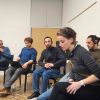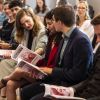“This friendship shows that a solution can be found to every conflict”
Israel and Germany established diplomatic relations 60 years ago. Four young people report on their experiences of thriving exchange.
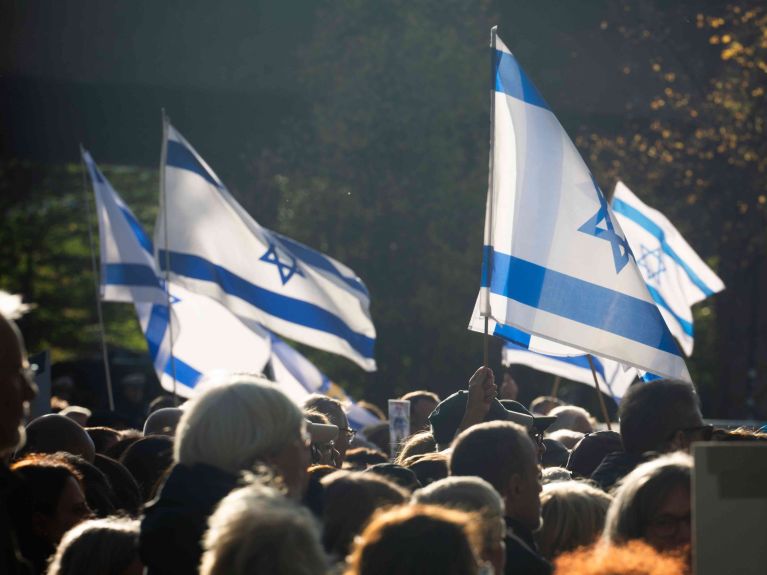
The relationship between Germany and Israel is unique. Over the past 60 years, the horrors of the past have given way to a close partnership – founded on dialogue, mutual trust and a shared desire to build bridges. Nonetheless, the anniversary has not come at an easy time. To mark the 60th anniversary of diplomatic relations between their two countries, four young people from Germany and Israel explain what these special ties mean to them - and how they are helping preserve them.
25-year-old Sofija Pavlenko is doing a master’s degree in journalism, communication and global studies in Vienna. She also holds workshops - particularly at schools - and chairs political and cultural events.
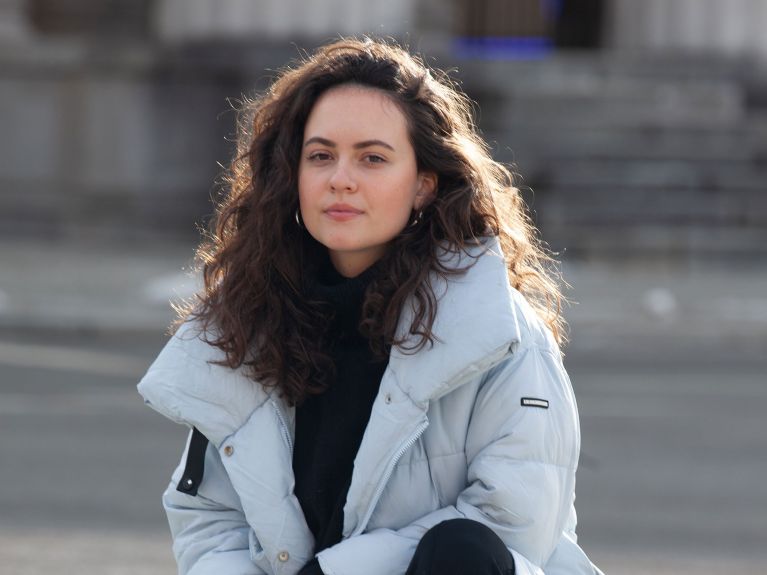
“I have Jewish roots and relatives in Israel, so I go there regularly. After my Abitur (university entrance qualification), I did voluntary service there, working with disadvantaged young people. In the process, I made a lot of new friends. For me, friendship means taking responsibility for one another. This should also be the case between countries. Israel and Germany are united by a friendship with all the usual ups and downs. I think both countries could risk being a bit more honest with each other and should engage in more reflection and constructive, mutual criticism. After all, a true friendship lasts longer and goes deeper if those involved are understanding but nonetheless always honest in their dealings with each other. I am grateful for the fact that I am able to travel regularly to Israel and would like it if other young people could do so too. When I’m doing my workshops in schools, I often discover how little people know about the complexity of the Middle East conflict. More should be done to educate people about this, and about the issue of anti-Semitism.”
24-year-old Jana Gerber is studying psychology in Osnabrück.
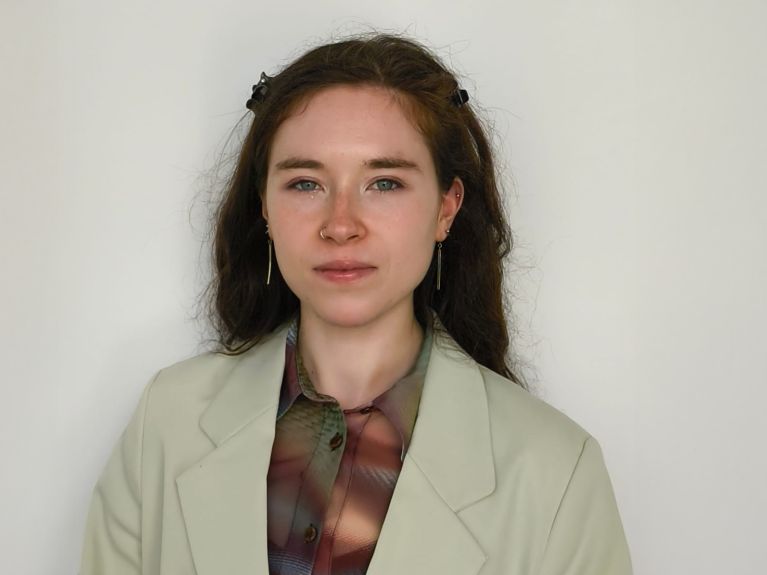
“For my bachelor’s thesis, I talked to Jewish people about how they experienced the rise in anti-Semitism in the wake of 7 October 2023. Previously I had known relatively little about Israel, but the interviews motivated me to learn more about the country. I then took part in an educational trip to Israel organised by the German-Israeli Future Forum. The people I met there opened their hearts to a group of strangers and were genuinely pleased about our interest. For me, German-Israeli friendship means standing up for the wellbeing of the Israeli people and listening to them. A friendship is based on dialogue and mutual engagement, not idealisation or monologues. It is especially in times of crisis that the true value of such a friendship becomes apparent. At times like this, a considerable degree of understanding, patience and sensitivity is required. We must try more to listen and understand, and to show solidarity even when situations are complex.”
Dvir Aviam Ezra, who is 28 and was born near Tel Aviv, currently lives and works in Frankfurt am Main. A law graduate, he is doing a PhD at the SAFE Leibniz Institute in Frankfurt am Main.
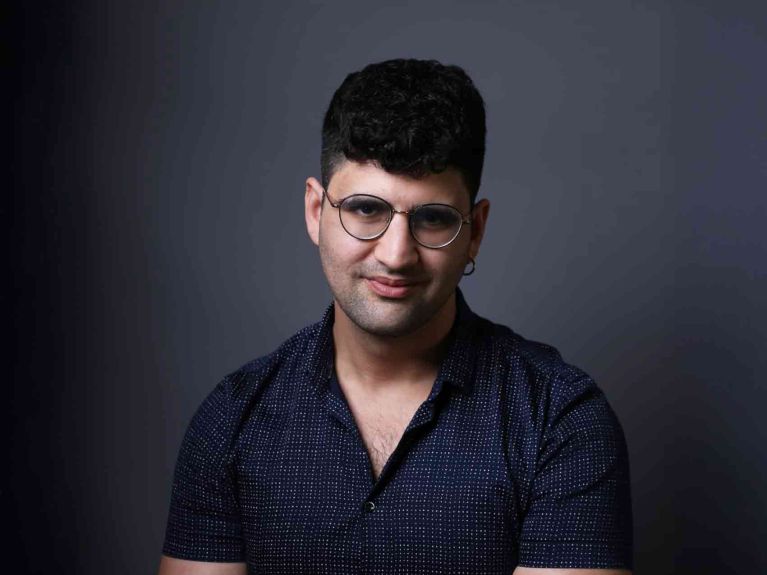
“Despite the horrific atrocities of the Shoah, Germany and Israel have managed to achieve reconciliation and embark on dialogue. This friendship means that a solution can be found to every conflict and that acknowledging the crimes of the past does not hinder but rather paves the way for peace. I experience this friendship every day when I work with my German colleagues, when I’m with my German partner and when I am involved in the activities of Peaceline and JEF Germany - organisations that are committed to peace and unity in Europe. As an Israeli, I concentrate on preserving and strengthening Israel’s pluralistic and progressive identity and campaign for regional peace. I am also active in the Sylke Tempel Fellowship programme. By ensuring that Israel remains a democratic and open society, we can make sure that it remains an attractive destination for exchange among the German population.”
Annika Finken is 28 and works at the German-Israeli Future Forum Foundation, where she is responsible for the Sylke Tempel Fellowshipprogramme.
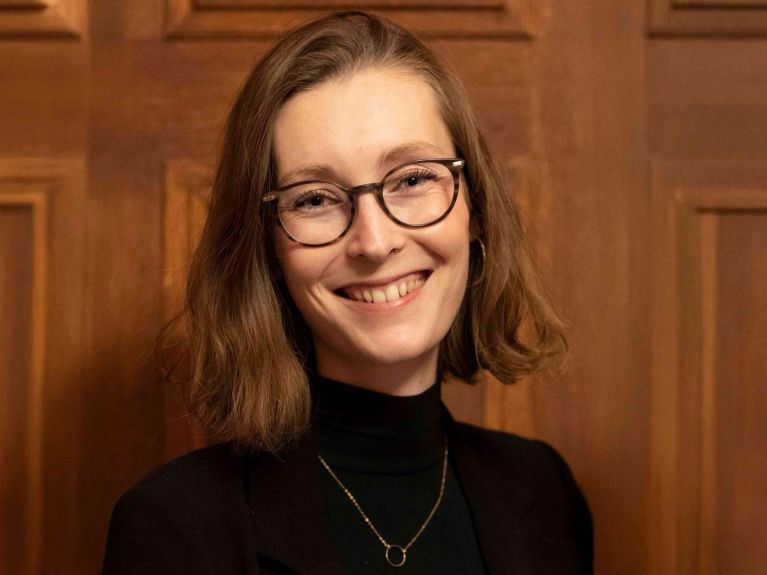
“While studying history in Berlin, I engaged intensively with Israel and also spent a year beforehand living in Jerusalem, which deepened my ties with the country. I was impressed by how active and diverse civil society is in Israel. After 7 October 2023, for example, many organisations spontaneously joined forces to provide emergency assistance. During personal encounters, in the course of my work at the German-Israeli Future Forum for instance, I discover time and again how much we can learn from one another in terms of societal resilience, how to deal with climate change or regarding civil society engagement. I would like to see a lot more exchange between young Germans and Israelis - involving trainees and apprentices, for example. We are getting the ball rolling in this context with our project Building Bridges for the Future.”
